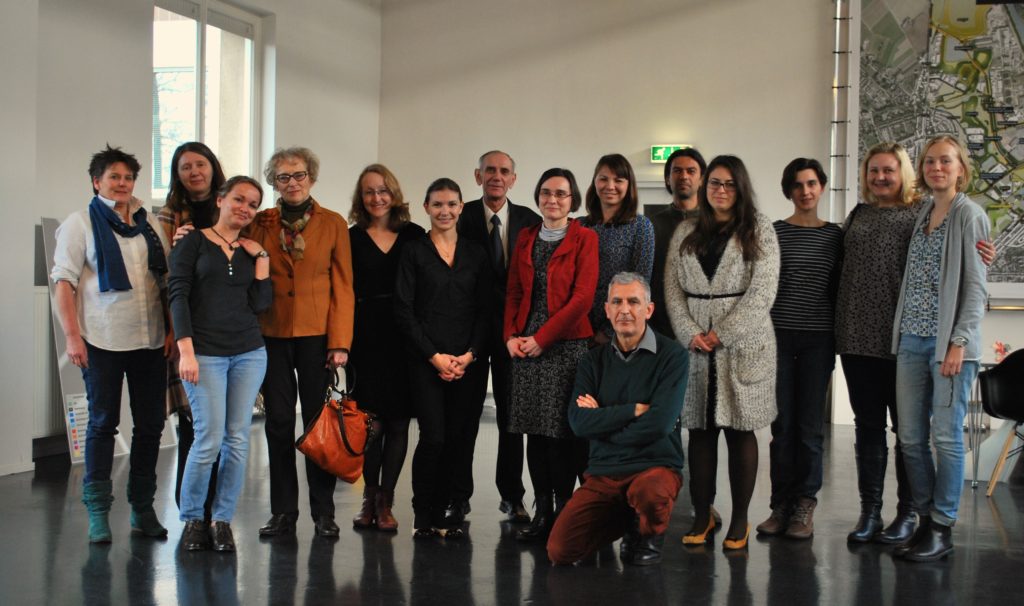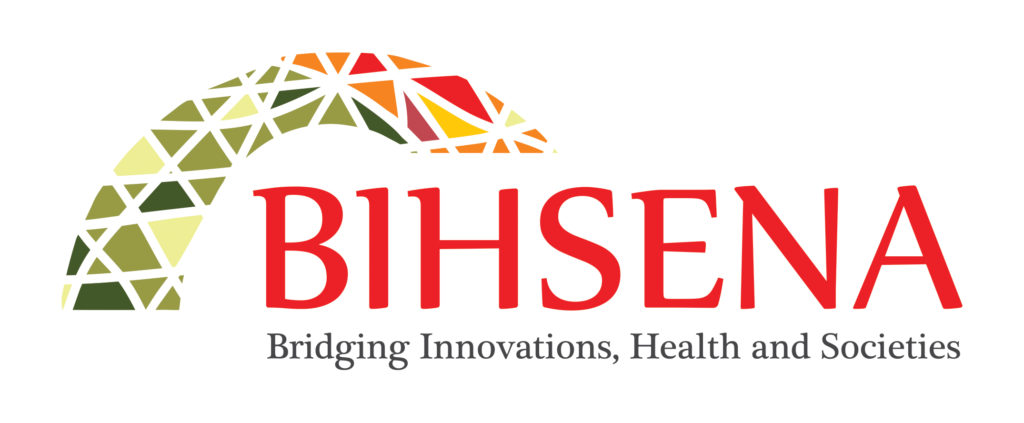Since the 1990s, Eastern European societies and their respective health care systems have been undergoing a series of major transformations – some of the changes have worked out successfully, others have had minor positive effects. One of the reasons for lack of progress in the field of health care and the medical innovations is that Post-Soviet governance mechanisms are not well attuned to the new realities. We believe that intersectorial collaboration and new education approaches may help to overcome this problem, as it prepares researchers, professionals and policy makers for analysing and dealing with the specific problems they meet.
The project “Bridging Innovations, Health and Societies: Educational Capacity-Building in Easter European Neighbouring Areas” (BIHSENA) aims to respond to the lack of education opportunities in the interdisciplinary area of health, innovations and society in the two countries of Russia and Ukraine, and to bridge a gap between (bio)medical and social scientists, academics and practitioners in these two countries, as well as between local and international communities. The common history regarding the organization of health care system (by means of the so-called Semashko’s model), and the health sector more generally, as well as similar past attempts to redesign it, create a shared ground for Russian and Ukrainian partners to do research, design solutions and develop up-to-date educational programs.
The project has started at the beginning of 2016. It was supported by Erasmus+ programme of the European Union and brings together seven universities: Maastricht University (the Netherlands); National Research Tomsk State University and Siberian State Medical University (Russia); National University of “Kyiv-Mohyla Academy” and Vinnitsa National Pirogov Memorial Medical University (Ukraine); Plovdiv University Paisii Hilendarski (Bulgaria), and Andrzej Frycz Modrzewski Krakow University (Poland). The project is led by Dr. Klasien Horstman, professor of Philosophy of Public Health at Maastricht University. The Policy Analysis and Studies of Technologies Centre (PAST-Centre) is a key partner in the BIHSENA project.
The BIHSENA project was conceived by a group of scholars who came together in Tomsk to take a part in an international conference Social Sciences and Medical Innovations: Doing Things Together in May 2015 (a report on the conference can be found here: http://www.medanthrotheory.org/read/5431/social-sciences-medical-innovations). In the course of the conference, it became clear that, among the various post-Soviet transitions analysed and discussed at the event, Russia and Ukraine face very similar challenges in the area of health and medicine, even though they have followed relatively divergent development trajectories after the collapse of the USSR. Two central issues were identified by members of BIHSENA consortium in both Ukraine and Russia.

First, important shortcomings for the health sectors of both countries result from their education systems. Specifically, there is a major lack of higher education programs and opportunities that would adequately prepare professionals – in the field of medicine, public health, social sciences and social policy – to work under conditions of transition, to effectively govern health reforms/innovations and to conduct the kind of interdisciplinary research that is needed to adequately inform policy- and decision-making for citizens’ health.
Creating educational opportunities to adequately prepare such professionals seems indeed crucial, specially for university-level teaching staff that requires an in-depth knowledge of recent approaches in the interdisciplinary field of health, innovations and society, and varied and active modes of education that fit that content. Currently, however, education programmes in Ukraine and Russia hardly address intersections of health, innovations and society and rarely bring together insights from various disciplinary fields. Traditional formats of education, emphasizing lecturing, large student groups and face-to-face learning are dominant at the expense of more interactive, student-centred and blended learning approaches2.
Second, both countries lack opportunities and platforms for communication and engagement between (bio)medical and social scientists; academics and practitioners; scientists, policy makers and industry. Bridging disciplines, professions and sectors is necessary to early diagnose problems with respect to specific innovations and policies, and to promote more thorough and responsive approaches to health issues in the two countries.
The BIHSENA capacity-building project addresses both problems. In 2016 the BIHSENA team began work together and has already organised training programmes for 40 teachers from Russia and Ukraine in Maastricht University. The training enhanced the capacity of partner universities in Eastern European region to use active, interdisciplinary and blended modes of education, necessary for the development of new educational opportunities in the field of health, innovations and society. The issues, the training programme focused on, included: a. the productive use of Problem-Based Learning in practice; b. design and implementation of blended learning elements; and c. development and planning of active learning curricula. Special attention was given to ways of translating active and blended learning methodologies into different socio-cultural contexts. During the training period groups of teachers developed outlines of new interdisciplinary education modules, using the knowledge gained.
The next upcoming BIHSENA project event is going to take place in Bulgaria. During this event BIHSENA team will deliberate on the content of the new courses that are being developed within the framework of this project. The first part involves problem-based learning sessions, lectures and group discussions devoted to the recent insights from the interdisciplinary field of health, innovations and societies. The topics include critical approaches to epidemiology and metrics of disease; current health systems transition; recent perspectives on definitions, processes and implications of innovations for health; developments in governance of health care; roles of publics in public health. The second part focuses on competence-based education and specification of competences for professionals working in health, innovations and society domain. The final, third, part of the workshop consists of presentations and discussions of the new course syllabuses being prepared by BIHSENA consortium members.
The new course syllabuses will be further discussed with healthcare practitioners, representatives of business and regulators to ensure that new education opportunities fit particularities and needs of local settings. Furthermore, in line with the philosophy of student-centred education, students’ perspectives and interests will be incorporated in the development and adaptation of these new educational opportunities. Thus, BIHSENA courses in the interdisciplinary field of health, innovations and society will be co-produced by project partners, students and those already working on the ground.
This project has been funded with support from the European Commission. This publication reflects the views only of the author, and the Commission cannot be held responsible for any use which may be made of the information contained therein.
